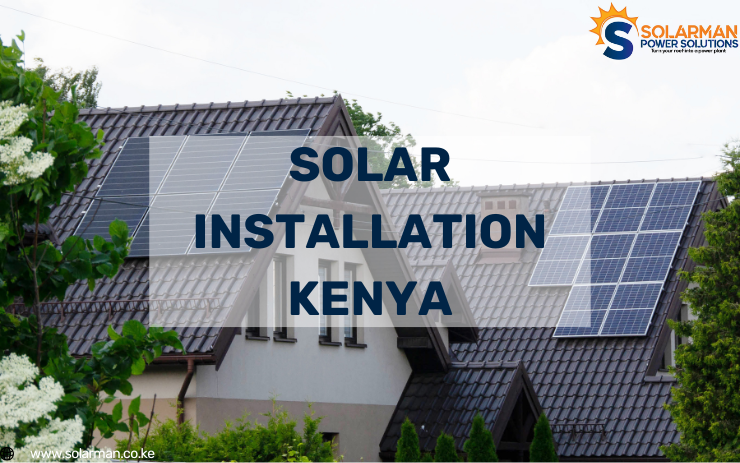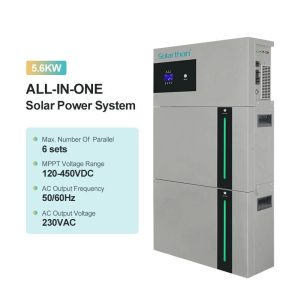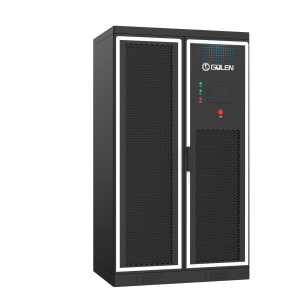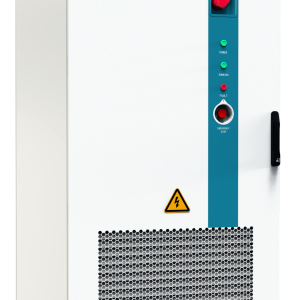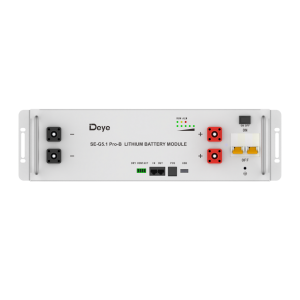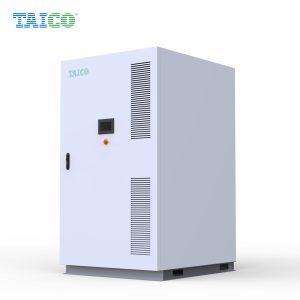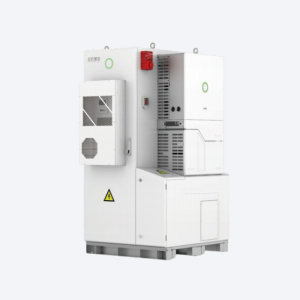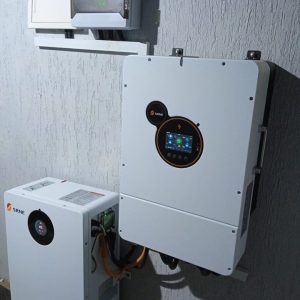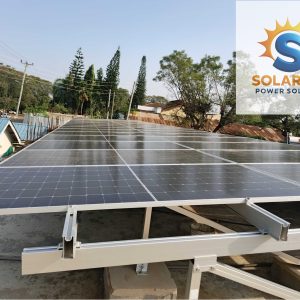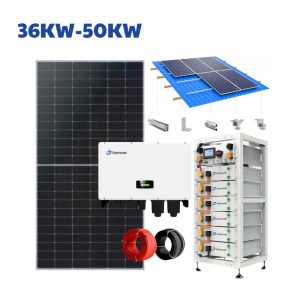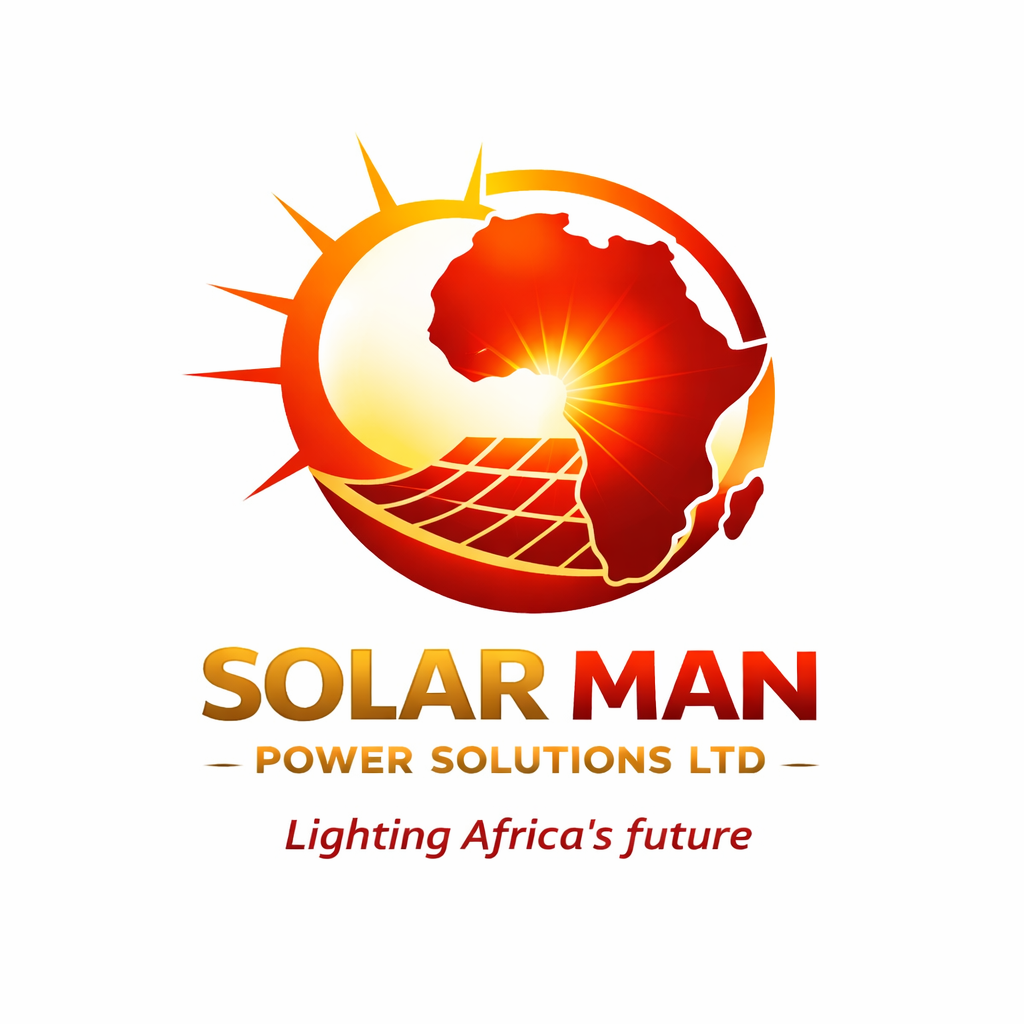Solar energy is transforming how we power our homes and businesses in Kenya.
With abundant sunshine all year round, installing a solar system is a smart, eco-friendly, and cost-effective solution to electricity challenges.
If you’re considering solar installation in Kenya, this guide will help you understand the process, benefits, and what to expect.
At Solarman, we specialize in providing high-quality solar installation services to meet the unique needs of Kenyan households and businesses.
Table of Contents
What Is Solar Installation?
Solar installation is the process of setting up a solar power system that captures sunlight and converts it into electricity for your home or business.
A complete system includes solar panels, a solar battery for energy storage, an inverter, and installation accessories.
Key Components of a Solar Installation:
- Solar Panels: Capture sunlight and convert it into electricity.
- Inverter: Converts electricity from the panels into a usable form for your appliances.
- Solar Battery: Stores energy for use at night or during power outages.
- Mounting Structure: Holds the panels securely on your roof or the ground.
- Wiring and Accessories: Connects all components to create a functional system.
Benefits of Solar Installation in Kenya
1. Save Money on Electricity Bills
Once installed, a solar system generates free electricity from the sun, significantly reducing your monthly power bills.
2. Reliable Power Supply
With a solar battery, your system can store energy for use during blackouts or at night. This ensures that your home or business always has power, even when the grid goes down.
3. Eco-Friendly Energy
Solar power is renewable and clean, helping reduce greenhouse gas emissions and protect the environment.
4. Long-Term Investment
Solar systems are built to last 20–25 years, making them a great long-term investment.
5. Energy Independence
Installing solar panels reduces your reliance on the national grid, giving you control over your energy supply.
How Solar Installation Works in Kenya
The solar installation process involves several steps to ensure your system is set up correctly and efficiently.
Step 1: Site Assessment
The installation team evaluates your property to determine the best location for the solar panels, ensuring maximum sunlight exposure.
Step 2: System Design
A customized solar system is designed based on your energy needs, roof space, and budget.
Step 3: Installation
The panels, inverter, battery, and mounting structure are installed by professional technicians.
Step 4: Testing and Commissioning
The system is tested to ensure everything is working properly before it’s turned on.
Step 5: Maintenance and Support
Regular maintenance keeps your system running efficiently. At Solarman, we provide ongoing support to ensure your solar system lasts for years.
Types of Solar Installation Services in Kenya
1. Residential Solar Installation
Perfect for powering homes, a residential solar system can run lights, TVs, fridges, and other household appliances.
2. Commercial Solar Installation
Businesses can save on electricity costs by installing a solar system to power offices, shops, and factories.
3. Off-Grid Solar Systems
Ideal for remote areas without access to the national grid. These systems include batteries to store energy for use when needed.
4. Grid-Tied Solar Systems
These systems work with the national grid, allowing you to use solar power during the day and grid power at night if needed.
Why Choose Solarman for Solar Installation in Kenya?
At Solarman, we provide high-quality solar installation services tailored to meet your needs. Here’s why customers trust us:
1. Expert Installation
Our experienced technicians ensure your solar system is installed safely and efficiently.
2. Affordable Prices
We offer competitive rates for solar systems without compromising on quality.
3. High-Quality Products
We use durable solar panels, inverters, and batteries that are built to last in Kenya’s climate.
4. Custom Solutions
We design solar systems based on your specific energy needs and budget.
5. Ongoing Support
Our team provides maintenance and troubleshooting services to keep your system running smoothly.
How Much Does Solar Installation Cost in Kenya?
1.5 kW Solar System
- Price: KSh 110,000
- Includes:
- 2 x 180W panels
- 1.5 kW inverter
- 1 x 100Ah gel battery
- Installation and accessories
3 kW Solar System
- Price: KSh 180,000
- Includes:
- 2 x 350W panels
- 3 kW hybrid inverter
- 2 x 200Ah gel batteries
- Installation and accessories
- Solar Kit
5kW Complete Solar System – Home Energy Solution
KSh 380,000Original price was: KSh 380,000.KSh 299,000Current price is: KSh 299,000. Add to cart
5 kW Solar System
- Price: KSh 480,000
- Includes:
- 6 x 550W panels
- 5 kW hybrid inverter
- 1 x 5.12 kWh lithium-ion battery
- Installation and accessories
How to Get Started with Solar Installation
Getting started with solar installation is easy:
- Contact Solarman: Call or visit Solarman to discuss your energy needs.
- Site Assessment: Our team will visit your property to evaluate the best setup.
- Choose Your System: Select a system that fits your energy requirements and budget.
- Installation: Our technicians will install the system and ensure it’s working perfectly.
- Enjoy Solar Power: Start saving money and enjoying reliable, clean energy.
Maintaining Your Solar System
Solar systems require minimal maintenance, but regular care ensures they run efficiently:
- Clean the Panels: Remove dust and dirt every few months.
- Inspect Connections: Check wires and connectors for damage.
- Monitor Performance: Use a solar monitoring system to track energy output.
- Check the Battery: Ensure your battery is charging and discharging properly.
The Environmental Impact of Solar Installation
Solar power is not just a practical and cost-effective energy solution—it’s also a way to protect the environment.
By switching to solar energy, you contribute to reducing harmful greenhouse gas emissions and preserving natural resources.
How Solar Energy Helps the Environment:
- Reduces Air Pollution: Solar energy doesn’t emit harmful gases like carbon dioxide, which are produced by fossil fuels.
- Conserves Water: Unlike traditional power plants, solar energy systems don’t require water for cooling, conserving this vital resource.
- Slows Climate Change: Using renewable energy helps combat the effects of global warming by lowering your carbon footprint.
Choosing solar power not only benefits your home or business but also helps future generations by promoting a cleaner and healthier planet.
Types of Solar Batteries for Your Installation
Solar batteries are a critical part of any solar installation, especially for ensuring reliable power during the night or blackouts.
At Solarman, we offer various types of solar batteries to suit your needs.
1. Gel Batteries
- Maintenance-free and affordable.
- Best for small to medium solar systems.
- Lifespan: 3–5 years.
2. Lithium-Ion Batteries
- Compact, long-lasting, and highly efficient.
- Ideal for larger solar installations.
- Lifespan: 10–15 years.
3. Tubular Flooded Batteries
- Durable and designed for high performance.
- Require occasional maintenance, such as adding distilled water.
- Lifespan: 5–8 years.
Choosing the right battery depends on your energy needs, budget, and whether you need backup power during outages.
Our team at Solarman can guide you in selecting the best option.
- Solar Battery
Golen LEG-250K/500K-TT-B Commercial Power Conversion System (PCS) – C&I Energy Storage Inverter Kenya
KSh 3,800,000Original price was: KSh 3,800,000.KSh 3,514,390Current price is: KSh 3,514,390. Add to cart - Solar Battery
🔋 Golen Power 241kWh Outdoor Energy Storage Cabinet (C&I ESS)
KSh 4,000,000Original price was: KSh 4,000,000.KSh 3,777,995Current price is: KSh 3,777,995. Add to cart - Solar Battery
Deye 5.12 kWh Lithium Ion Battery
KSh 150,000Original price was: KSh 150,000.KSh 145,000Current price is: KSh 145,000. Add to cart - Lithium Battery
Deye-BMU-Battery High Voltage Control Box for BOS-G
KSh 160,000Original price was: KSh 160,000.KSh 150,800Current price is: KSh 150,800. Add to cart - Solar Battery
Taico TKE-Cube A200: 100kW Hybrid/Off-Grid Commercial & Industrial Energy Storage System (ESS)
KSh 6,800,000Original price was: KSh 6,800,000.KSh 6,687,500Current price is: KSh 6,687,500. Add to cart - Solar Battery
Taico TKE-Cube A400: 200kW Hybrid/Off-Grid Commercial & Industrial Energy Storage System (ESS)
KSh 12,000,000Original price was: KSh 12,000,000.KSh 11,687,500Current price is: KSh 11,687,500. Add to cart - Solar Battery
Taico TKE-Cube A100: 50kW Hybrid/Off-Grid Commercial & Industrial Energy Storage System (ESS)
KSh 4,300,000Original price was: KSh 4,300,000.KSh 4,187,500Current price is: KSh 4,187,500. Add to cart - Solar Battery
Taico TKE-Cube A400: 300kW Hybrid/Off-Grid Commercial & Industrial Energy Storage System (ESS)
KSh 18,500,000Original price was: KSh 18,500,000.KSh 17,975,000Current price is: KSh 17,975,000. Add to cart
How Solar Power Supports Rural Development in Kenya
Solar power has played a key role in improving lives in rural areas of Kenya.
Many villages that lack access to the national grid can now enjoy reliable electricity thanks to solar installations.
Key Benefits in Rural Areas:
- Improved Education: Solar-powered lights allow students to study at night.
- Economic Growth: Small businesses can operate longer hours with reliable power.
- Healthcare Access: Clinics in remote areas can use solar systems to power essential equipment.
- Clean Cooking: Solar-powered stoves reduce reliance on wood and charcoal, promoting cleaner air.
By investing in solar energy, you’re not just powering your home—you’re supporting a brighter future for communities across Kenya.
Tips for Choosing the Best Solar Installer in Kenya
Selecting the right company for your solar installation ensures you get the best results.
Here’s what to look for:
1. Experience and Expertise
Choose a company with years of experience in solar installation, like Solarman, to ensure quality work.
2. High-Quality Products
Ensure the installer uses reliable panels, inverters, and batteries that can withstand Kenya’s climate.
3. Transparent Pricing
Look for clear pricing with no hidden costs. Solarman provides detailed quotes so you know exactly what you’re paying for.
4. After-Sales Support
A good installer offers maintenance and support services to keep your system running efficiently.
5. Positive Customer Reviews
Check testimonials and reviews from previous clients to ensure you’re working with a trusted company.
Solar Installation for Different Needs
1. Homes
Solar systems for homes can power lights, TVs, fridges, and even security systems. A small to medium setup is usually sufficient for most households.
2. Schools
Solar installations in schools provide reliable power for lighting, computers, and learning tools, especially in rural areas.
3. Farms
Solar-powered water pumps, irrigation systems, and electric fences help improve agricultural productivity.
4. Businesses
Shops, offices, and factories benefit from reduced electricity costs and reliable energy for equipment and lighting.
FAQs
1. How much does solar installation cost in Kenya?
The cost depends on the system size. At Solarman, prices start at KSh 110,000 for a 1.5 kW system.
2. Do I need a solar battery?
Yes, a battery stores energy for use at night or during blackouts, ensuring a reliable power supply.
3. How long does solar installation take?
Installation typically takes 1–2 days, depending on the system size and complexity.
4. Can I use solar power during a blackout?
Yes, if your system includes a battery or is off-grid, it will provide backup power during blackouts.
5. How long do solar panels last?
High-quality solar panels last 20–25 years with proper maintenance.
- Solar Battery
Golen LEG-250K/500K-TT-B Commercial Power Conversion System (PCS) – C&I Energy Storage Inverter Kenya
KSh 3,800,000Original price was: KSh 3,800,000.KSh 3,514,390Current price is: KSh 3,514,390. Add to cart - Solar Battery
🔋 Golen Power 241kWh Outdoor Energy Storage Cabinet (C&I ESS)
KSh 4,000,000Original price was: KSh 4,000,000.KSh 3,777,995Current price is: KSh 3,777,995. Add to cart - All-In-One Energy Storage System
SAJ 50kw All In One Energy Storage Solution 100kWh
KSh 3,900,000Original price was: KSh 3,900,000.KSh 3,850,000Current price is: KSh 3,850,000. Add to cart - Solar Solutions
12kW Solar Package – Big Domestic Home & Small Business (KES 650,000)
KSh 700,000Original price was: KSh 700,000.KSh 650,000Current price is: KSh 650,000. Add to cart - All-In-One Energy Storage System
20 kWp Complete Solar System – Business Ultimate
KSh 2,300,000Original price was: KSh 2,300,000.KSh 2,166,000Current price is: KSh 2,166,000. Add to cart - All-In-One Energy Storage System
16 kWp Complete Solar System – Business Premium Plus (16kW Hybrid + 30kWh LFP Battery)
KSh 1,700,000Original price was: KSh 1,700,000.KSh 1,625,000Current price is: KSh 1,625,000. Add to cart - All-In-One Energy Storage System
10 kWp Solar System – Perfect for Offices, Clinics, Hotels & Schools
KSh 1,200,000Original price was: KSh 1,200,000.KSh 1,145,300Current price is: KSh 1,145,300. Add to cart - Uncategorized
🔆 SOLAR MAN POWER SOLUTIONS 50kW Hybrid Commercial Solar-Plus-Storage System
KSh 3,500,000Original price was: KSh 3,500,000.KSh 2,999,999Current price is: KSh 2,999,999. Add to cart
